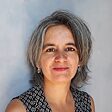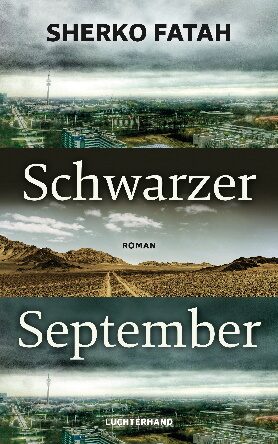Sherko Fatah
Schwarzer September
[Black September]
- Luchterhand Literaturverlag
- Munich 2019
- ISBN 978-3-630-87475-3
- 384 Pages
- Publisher’s contact details
Published in Greek with a grant from Litrix.de.
Sample translations
Book description
The perspective changes with each chapter, guaranteeing tense cliff-hangers. The novel’s focal point, however, is Ziad, a young Arab from a poor background. Tracing his adventurous path from poverty-stricken nobody to wily terrorist, Fatah presents a career path still typical to this day. Back in the early 70s, leftist students identify with the Palestinians and are recruited to train as terrorists in the Middle East. All of them are on the radar of the American secret service, whose agents lead a life far removed from home, with all its pros and cons.
The novel’s main setting is Beirut, then known as the ‘Paris of the Middle East’. A covert protagonist, the city’s sea and sky with their changing colours not only provide atmospheric backdrops but also reflect the mood of the moment. The book also takes us to Paris, Marseilles, Frankfurt, Berlin, Cairo and Bagdad. The terrorist group’s waft and weft extend across several continents, as the novel’s characters are woven into a complex network of shifting loyalties and opaque frontlines. ‘No one really has an overview,’ Sherko Fatah explains, asked about the politics of the Middle East. He takes this into account in his novel by refraining from taking sides, preferring to present the complexity of the political entanglements. Along the way, Fatah tells the backstory to today’s religious warring, the perfidious cruelty of terrorist attacks seeping into the foundations of his novel as if by chance.
Fatah has received many awards and prestigious nominations for his work, partly due to the originality of his style. In Black September, for instance, he describes a mosque and its loudspeakers pointing in all directions like amusing ears, and compares a nightclub in the early evening to the disenchantment of a brightly lit cinema. Elsewhere, he refers to lovers who keep keenly to their bed.
Sherko Fatah was born in East Berlin in 1964, the son of a German mother and a Kurdish-Iraqi father. His precisely researched political thrillers have earned him an outstanding reputation in contemporary German-language literature. For this novel, too, he viewed reams of archive material to create a historical framework as authentic as possible. Yet his research never weighs the novel down, partly because Fatah does not merely document historical events but also gives them an exciting individualized face. His book is populated by very different mentalities, cultures and characters. Their life stories are bursting with thirst for adventure and will to change the world. Fatah comes incredibly close to all of them, veritably breathing down their necks. He refers to it himself as accompanying them with a camera on his shoulder. This time around, he follows them into the 1980s and embeds their stories in a fast-paced novel as familiar with the rush of danger as it is with the hunger for revolution.
Translated by Katy Derbyshire

By Shirin Sojitrawalla
Shirin Sojitrawalla is a freelance journalist who writes chiefly on theatre and literature for a variety of outlets including Deutschlandfunk, taz - die tageszeitung, Frankfurter Rundschau, Theater der Zeit and Nachtkritik.de. She lives and works in Wiesbaden.
Publisher's Summary
Black September is a novel about the terrorism of the seventies. Rebellious idealists such as Theresa, Alexander and Jakob travel to the Middle East to receive training. Their families in the Federal Republic of Germany are left with legends. People from the Middle East, on the other hand, move to the Federal Republic to organize actions. They all have one thing in common: to be instruments in a context they cannot comprehend. Waves of violence that still concern us today, even though terrorism has since shifted from a violence exercised with revolutionary vigour to an expression of extremely politicized religiosity.
Sherko Fatah is one of the wisest observers and interpreters of what is happening in the Middle East. His novels, rich in facts yet dense in atmosphere, are ahead of their time even when they look back into the past. They trace the adventurous paths of characters from different cultures in the midst of conflicts in the Middle East and describe the effects of these conflicts which also reach today's Western Europe like shock waves.
(Text: Luchterhand Literaturverlag)
